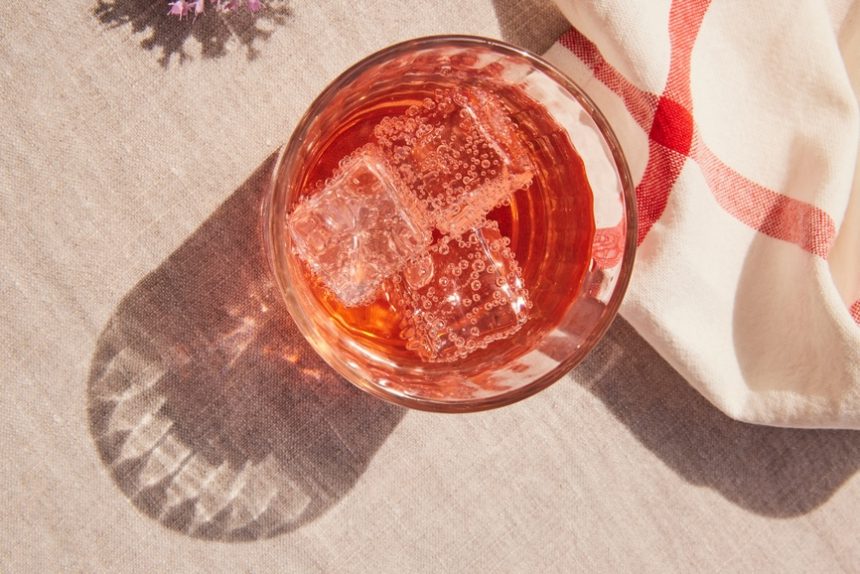Ahead, discover the link between sparkling water and digestive distress, explained by Maddie Pasquariello, MS, RDN, of East Coast Health in Brooklyn, NY. Plus, find creative ways to continue enjoying sparkling water while minimizing any negative effects.
Does Sparkling Water Cause IBS and Digestive Issues?
“There is some evidence to suggest that drinking sparkling water is associated with certain types of IBS,” says Pasquariello. For example, a study in the journal BMC Gastroenterology found that a higher intake of carbonated beverages was linked to diarrhea-predominant IBS. However, it is still unclear what exactly causes IBS, with factors such as nervous system dysregulation, gut imbalances, stress, infections, and intestinal muscle contractions possibly playing a role.
“While it’s unlikely that sparkling drinks directly cause IBS or other GI conditions, the increase in bloating and gas experienced by some individuals after consuming sparkling water can worsen their symptoms,” explains Pasquariello. These symptoms are common in people with IBS and those with minor digestive sensitivities. Addressing anything that exacerbates these symptoms is essential for overall well-being, as increased bloating and gas can lead to anxiety, which further impacts digestion.”
“While it’s unlikely that sparkling drinks could cause IBS or other GI conditions, the reason some experience worsened GI symptoms after consuming sparkling water is primarily due to bloating and gas,” says Pasquariello.
In summary, while sparkling water may worsen digestive issues, including IBS, it is not inevitable. If you frequently consume sparkling water, pay attention to how it affects your symptoms. Keeping a food diary can help identify patterns and determine if reducing intake is necessary.
However, as Kirsten Jackson, RD, previously advised, it’s best to avoid sparkling water when anticipating or experiencing an IBS flare-up, even if it is generally well-tolerated. In such situations, the body becomes more sensitive, making it advisable to steer clear of common IBS triggers.”
—Kirsten Jackson, RD
How to Make Your Sparkling Water Habit More Stomach-Friendly
I know, I know: Giving up sparkling water, especially if you enjoy it, can be challenging. If it is a regular part of your hydration routine and you are reluctant to eliminate it completely, Pasquariello offers tips to continue enjoying sparkling water in moderation without exacerbating distress.
1. Prioritize Water
“Maintaining proper hydration is crucial for individuals with digestive issues. Sufficient water intake helps with nutrient absorption, prevents constipation, and reduces cramps and abdominal pain,” Pasquariello advises.
She notes that both flat and sparkling water contribute to hydration. Inadequate water consumption can lead to digestive issues, so it’s essential to stay hydrated. Additionally, sparkling water is generally less acidic than soda or fruit juice, making it a preferable option.”
2. Mix Flat and Sparkling Water
If you find that sparkling water triggers bloating or gas, it’s important to adjust your intake. However, if giving up sparkling water entirely is not an option, Pasquariello recommends blending carbonated water with still water to reduce overall carbonation, or alternating between them. If plain water is too bland for your taste, try infusing it with flavors like cucumber, lemon, mint, or berries with basil or rosemary.”
For individuals with sensitive stomachs, it’s advisable to avoid citrus fruits. “Adding lemon or orange juice can increase acidity, so dilution may be beneficial,” Pasquariello suggests.
3. Opt for Less Acidic Sparkling Water
For those with sensitive stomachs, choosing less acidic types of sparkling water from different brands, which can vary in flavor, may be better. Minimizing consumption of highly acidic drinks can also help protect tooth enamel. “Online charts comparing pH levels of different brands can be helpful,” says Pasquariello. “If you experience discomfort with specific beverages, taking a break from them can help determine if they are the cause of exacerbation or if another aspect of your diet or lifestyle is to blame.”





